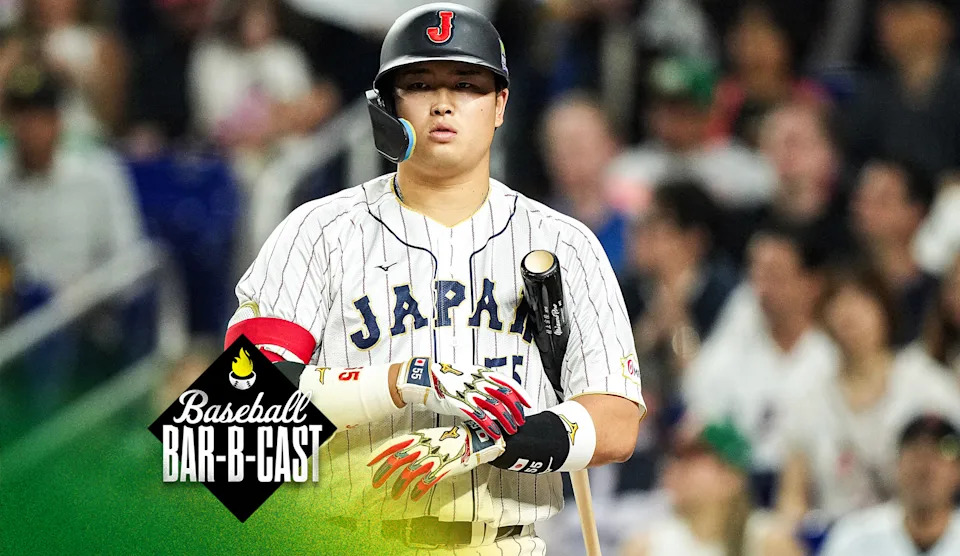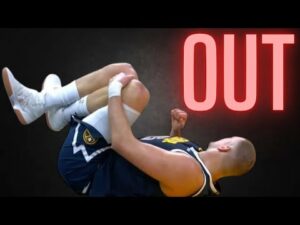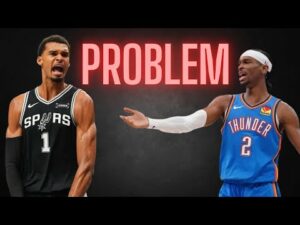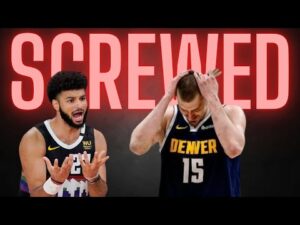
Inside the $450K Pitch Plot: How Star Closer Emmanuel Clase and Luis Ortiz Allegedly Orchestrated a Shocking Scheme
For nearly four months now, as Major League Baseball surged from a thrilling midseason surge straight into an electrifying postseason, a shadow has loomed large over the game. This isn’t just your run-of-the-mill controversy—the league has been wrestling with a deeply unsettling sports betting probe riddled with mysteries and alarming possibilities. Back in July, the Cleveland Guardians took the dramatic step of placing two of their pitchers, Luis Ortiz and Emmanuel Clase, on administrative leave amid suspicions about suspicious betting activity tied directly to individual pitches they threw. What made this all the more electrifying—and frankly nerve-wracking—was the chilling notion that these athletes might have been entangled in wagers impacting the very plays unfolding on the mound.
At first, after the initial shock of sidelining Ortiz and Clase hit the headlines, the furor simmered as fans and insiders alike were left to speculate wildly on what might truly be going on. Updates from the league were frustratingly sparse, keeping the saga shrouded in secrecy. Then, just as many thought the story might fade, a damning federal indictment dropped like a thunderclap. The Department of Justice laid bare a detailed and disturbing narrative: pitch after pitch, these two were allegedly tossing balls far outside the strike zone—intentionally—to help certain bettors, who were, strikingly, people they knew personally, win money betting on those exact pitches. In the league’s own words, MLB was fully cooperating from the get-go, and they remain deeply engaged as the legal process unfolds.
Adding layers to this complex tale is the timeline itself: the indictment reveals bettors raking in massive sums over several seasons, with Clase’s involvement going back to mid-2023, well before his time alongside Ortiz. This paints Clase as the principal architect behind these alleged manipulations, with Ortiz stepping into the web later on. The sums involved—over $450,000—are staggering, and the indications of winnings funneled abroad only deepen the intrigue. What’s painfully clear: this isn’t just another scandal; it strikes at the core of baseball’s integrity, challenging everything the sport stands for as it wrestles with the growing pains of legalized betting’s expansive reach.
It’s a tough pill to swallow for a game that has long guarded itself against gambling ties with an ironclad Rule 21—a rule so severe it threatens lifetime bans for those involved in any betting on the sport. Yet here we are, facing the stark reality that the boundary between the game and gambling is fraying dangerously fast. As MLB reckons with this crisis, grappling with its own embrace of betting sponsorship and in-game wagering promotions, the path forward demands more than optics—it demands action that restores trust in the game’s very soul. This unfolding story will shape baseball’s future, as it strives to keep the sport legitimate amidst an era where betting’s shadow only grows darker.
For the past four months, as Major League Baseball carried its momentum from an exciting second half into a wildly entertaining and invigorating postseason, a dark cloud has hung over the league in the form of a sports betting investigation that featured a host of troubling unknowns. Two Cleveland Guardians pitchers — Luis Ortiz and Emmanuel Clase — had been placed on administrative leave in July as the league investigated unusual gambling activity concentrated on individual pitches thrown by Ortiz and Clase, and the harrowing possibility that the pitchers were directly connected to wagers placed on the outcome of said pitches.
Advertisement
Once the initial shock of the pitchers’ respective removals from Cleveland’s roster passed during the summer, the story faded somewhat into the background as an ominous to-be-determined outcome, with outside observers left to wildly speculate about the best- and worst-case scenarios for what exactly had transpired. The league’s investigation unfolded behind the scenes with minimal substantive updates provided along the way beyond the repeated extensions of each pitcher’s leave.
Finally, a clearer picture of the situation has been revealed via federal indictment from the Department of Justice offering a detailed and troubling account of Clase and Ortiz’s alleged misdeeds. The 23-page document describes a picture of events that closely resembles what was presumed by many based on the initial round of reporting regarding what exactly was being investigated: That, according to federal authorities, on multiple occasions, Clase and Ortiz were throwing certain pitches nowhere near the strike zone with the express purpose of ensuring bettors — individuals with whom they had direct connections with — win wagers predicated on the pitches being balls, not strikes.
“MLB contacted federal law enforcement at the outset of its investigation and has fully cooperated throughout the process,” MLB said in a statement on Sunday in response to the DOJ’s charges. “We are aware of the indictment and today’s arrest [of Ortiz], and our investigation is ongoing.”
In addition to the basic premise of the alleged scheme, several other key takeaways can be gathered from the details within the indictment, beginning with the timeline of events itself. Upon the initial round of reporting regarding Clase and Ortiz, the focus seemed to be on a series of suspicious pitches thrown during the 2025 season. But the indictment describes three instances of bettors winning large sums of money by wagering on pitches thrown by Clase all the way back in May and June of 2023, with over $100,000 won on just those three pitches alone.

Emmanuel Clase hasn’t played in an MLB game since July 26. (Photo by Nick Cammett/Diamond Images via Getty Images)
(Diamond Images via Getty Images)
Why exactly Clase did not resume such alleged activity again — or at least, to our current knowledge — until April of 2025 is one of the biggest unknowns left looming as the story continues to unfold. But the fact the investigation uncovered these three examples from two seasons ago — long before Clase was even teammates with Ortiz — highlights that Clase, not Ortiz, was the individual most frequently and explicitly involved in carrying out the alleged improper actions on the mound. This is a crucial distinction considering it was Ortiz who was first placed on the restricted list in early July, suggesting he was the main character in the investigation until Clase joined him on administrative leave later that month. But there are direct references to eight instances of Clase throwing balls on purpose compared to just two from Ortiz, which did not occur until after Clase had seemingly successfully executed the scheme on several occasions over multiple seasons, according to the indictment.
Advertisement
It appears, however, based on the timing, that Ortiz’s two offerings in question — which both took place in June, and resulted in over $60,000 in winnings for the group of connected bettors — raised the requisite suspicion to warrant the investigation in the first place, which ballooned into something bigger.
In total, the bettors allegedly won over $450,000 from these wagers. The indictment details several instances in which a portion of the winnings were transferred to the pitchers’ associates in their home country of the Dominican Republic, although it remains unclear exactly how much of the winnings ended up with the pitchers relative to the individuals placing the bets.
What is clear in the report that features multiple examples of Clase communicating and interacting directly with bettors — including, shockingly, during the very games in which he was engaging in the illicit activity and by obtaining tickets for one of the bettors to attend said games in Cleveland — is that Clase was the driving force behind this alleged scheme. This is a stunningly poor reflection of character for a pitcher who already had one major misstep earlier in his career when he was suspended 80 games in 2020 for testing positive for a banned performance-enhancing drug. Clase had seemingly righted the ship since establishing himself in the majors in 2021, signing a $20 million extension in 2022 and blossoming into one of the most dominant relievers we’ve ever seen. Clase did not seem to be in the kind of position to need to turn to illegal affairs to find some extra fast cash, and yet it was him who allegedly engaged in this gambling scheme for an extended stretch before Ortiz, a far less established, notably less compensated pitcher who had far more to lose, “joined the criminal scheme,” according to the indictment.
It is this apparent context that could help Ortiz as he begins to battle these charges in court after being arrested Sunday, and his lawyer has already released a strongly-worded statement defending his client and declaring the indictment as insufficient in proving Ortiz’s knowing involvement. Clase, meanwhile, is reportedly not currently in custody, at least for now, but will certainly have a lot of explaining to do once he is detained.

Luis Ortiz was arrested in Boston for his alleged involvement in what the Department of Justice called a rigged gambling scheme. (Photo by Lachlan Cunningham/Getty Images)
(Lachlan Cunningham via Getty Images)
On the surface, it’s an understandable instinct to lump this latest piece of bad news as merely the latest chapter in an ever-expanding trend, as the proliferation of legalized sports betting and the increased ease of access to online sports wagering has unsurprisingly opened the door for a new era of scandals across various professional sports. But while two of baseball’s most infamous storylines involved gambling — from the crooked White Sox in the 1919 World Series to an all-time great player in Pete Rose betting on his own team while managing the Reds in the 1980s — it is not a category of scandal that had resurfaced much at all in the sport until recently. The hallowed and repeatedly reinforced Rule 21 — which threatens permanent ineligibility for any player, umpire, league or club official involved in any form of wagering on baseball — had long held up as a sufficient scare tactic.
Advertisement
But as legalized betting — and as the ways to wager on baseball have expanded exponentially in the form of “prop bets” to allow for wagers on hyperspecific events within a game beyond strictly its final outcome — has entered the mainstream, a wave of gambling-related scandals have surrounded MLB to various degrees in recent years.
This alleged nefarious activity involving Clase and Ortiz, however, achieves an entirely new level of alarming. Other than featuring “MLB” and “gambling” in the headlines, this latest explosive addition to the genre should not be held as remotely equal to the other recent betting-adjacent scandals in and around baseball. This is not Shohei Ohtani’s former interpreter Ippei Mizuhara stealing and losing millions of dollars gambling illegally on a litany of sports that didn’t even include baseball, according to prosecutors. This is not umpire Pat Hoberg naively sharing a gambling account with a friend who was placing bets on baseball. This is not a group of minor-leaguers placing small wagers on major-league games from a distance, or even Tucupita Marcano betting on games involving his team, the Pittsburgh Pirates, when he was on the major-league injured list.
All of these instances are disturbing and problematic in their own right, and featured varying degrees of league and legal punishment as a result. But what has allegedly taken place with Clase and Ortiz is infinitely worse. It is two individuals choosing to blatantly alter the specific outcome within a game with the express purpose of cashing in themselves, in turn completely disregarding the premise of fair and honest competition. It is an explicit and brazen attack on the integrity of the sport as we know it, which at its core, is what Rule 21 intends to uphold first and foremost.
Advertisement
It is this unfortunate reality — the worst-case scenario that what is happening on the field could be directly influenced by outside gambling activity — that MLB must grapple with moving forward, even once its internal investigation into Ortiz and Clase concludes. Having embraced various gambling companies as sponsors and welcomed a wave of advertising on broadcasts promoting in-game betting, the league is already fully engaged in the challenge of overcoming the optics of a drastic uptick in betting-related content coinciding with the rise in these betting-related scandals. But far more important than how any of it looks is finding a way to rebuild a more concrete boundary between betting activity and those who make up the sport itself is paramount as the league progresses into an era where gambling is unlikely to suddenly become any less prevalent.

































Post Comment